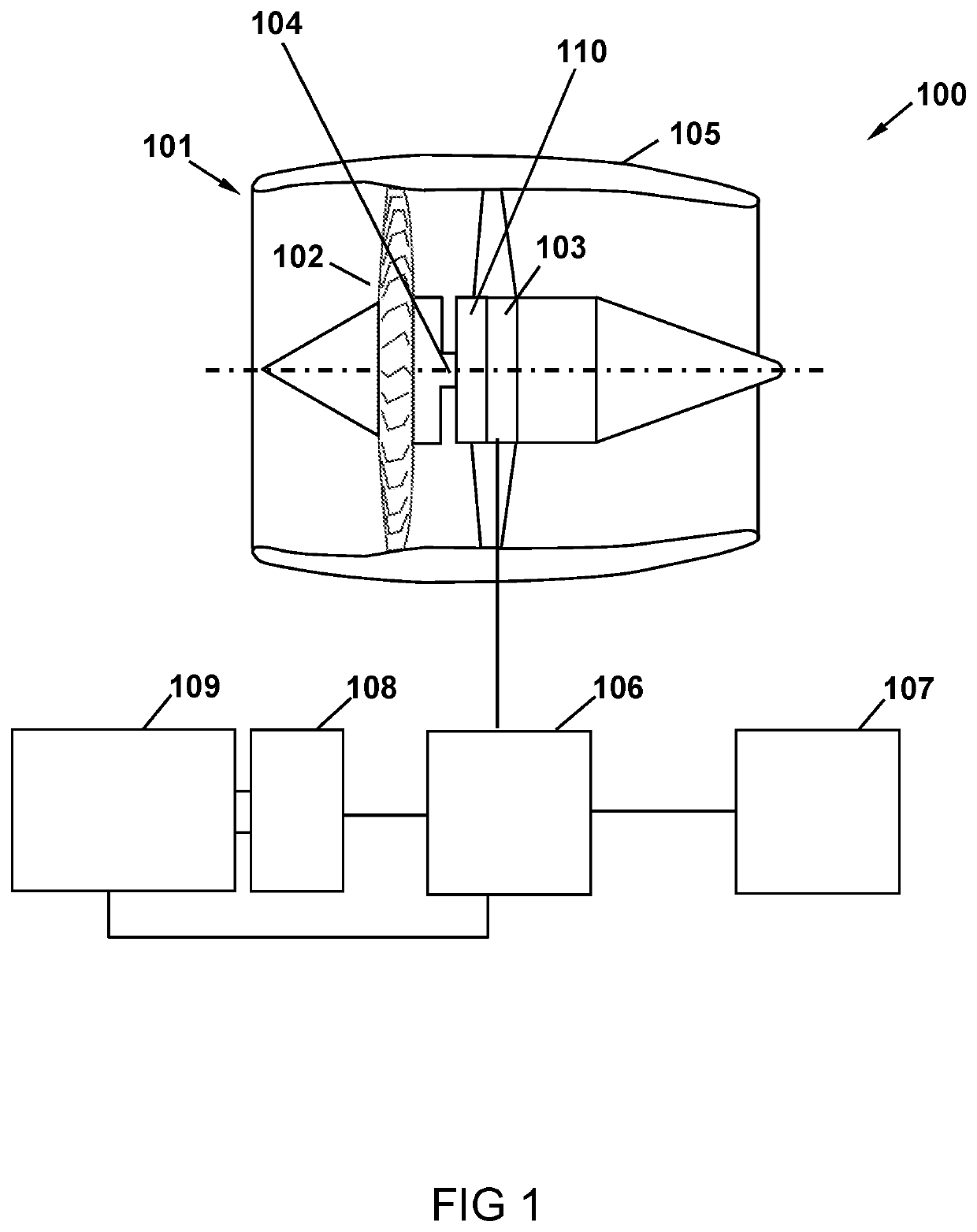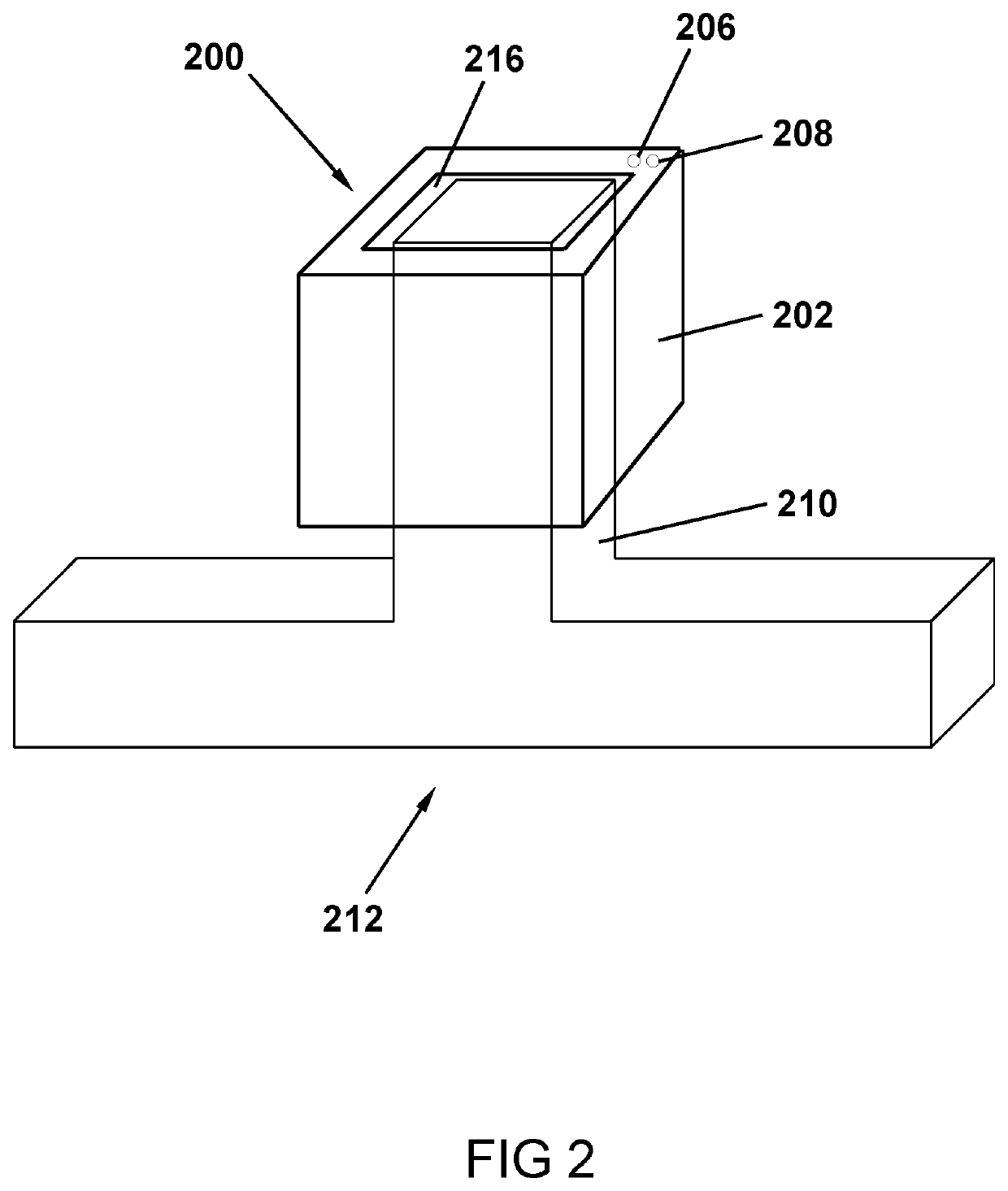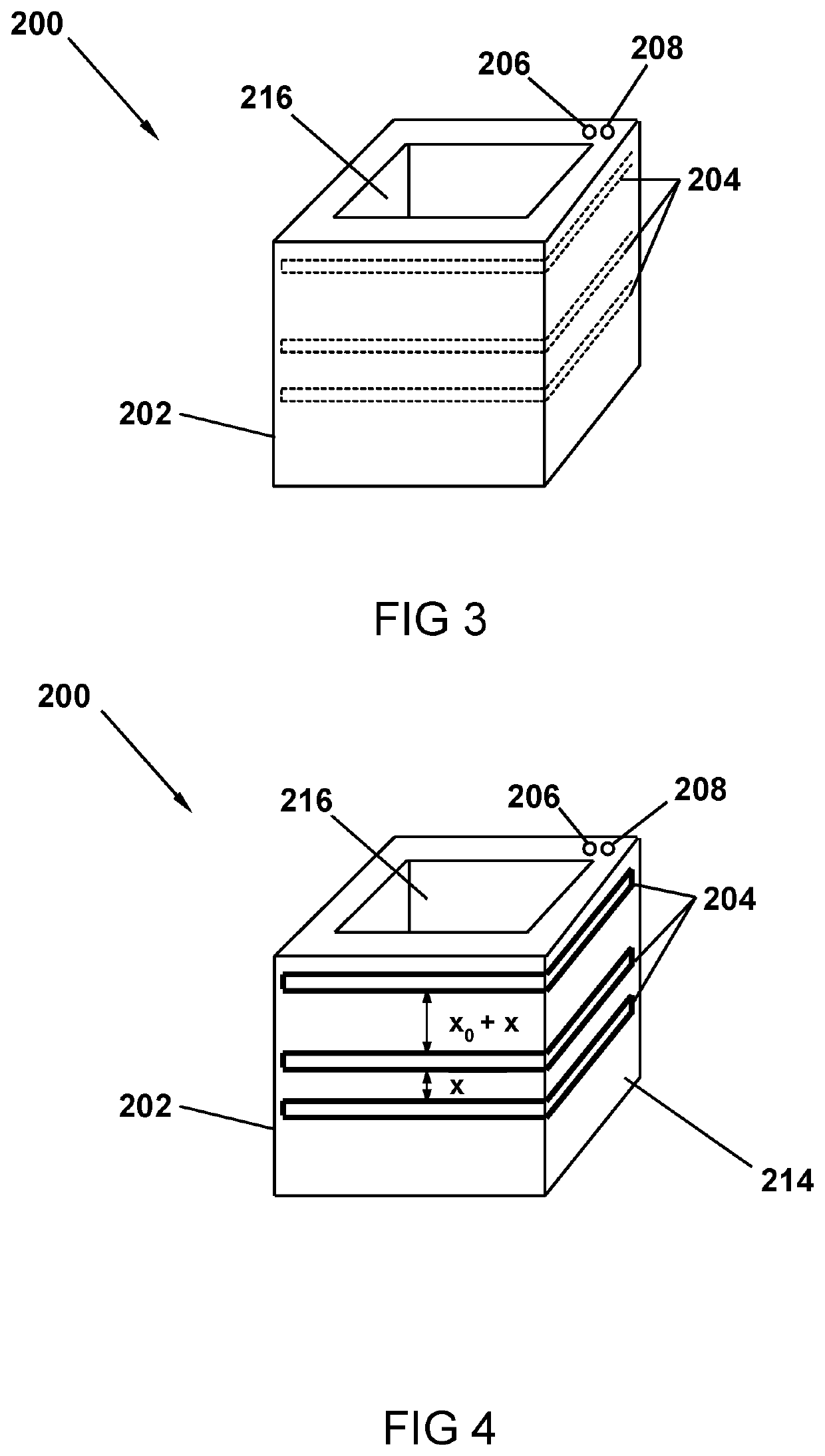Electrical machine winding assembly and method of manufacture thereof
a technology of winding assembly and electrical machine, which is applied in the direction of windings, inorganic insulators, magnetic circuit shapes/forms/construction, etc., can solve the problems of degrading electrical insulation, overvoltage of motor terminals, and typically set limits
- Summary
- Abstract
- Description
- Claims
- Application Information
AI Technical Summary
Benefits of technology
Problems solved by technology
Method used
Image
Examples
Embodiment Construction
[0055]A schematic diagram of a basic hybrid electric aircraft propulsion system 100 is shown in FIG. 1. An electric propulsion unit, or engine, 101 comprises a fan 102 connected to an electric motor 103 by a central shaft 104. As with a conventional gas turbine engine, the engine 101 comprises a nacelle 105 surrounding the fan 102 and motor 103. The engine 103 is provided with electric power via power electronics in a controller 106, which is connected to an electric storage unit 107, which may include a battery, a supercapacitor or a combination of the two.
[0056]The controller 106 is also connected to a generator 108 and a gas turbine engine 109. The gas turbine engine 109 drives the generator 108 to generate electric power, which the controller 106 distributes between the electric storage unit 107 and the electric motor 103. Under some conditions, the electric motor 103 may also act as a generator, for example when a reduction in thrust is demanded and the forward movement of the ...
PUM
| Property | Measurement | Unit |
|---|---|---|
| temperature | aaaaa | aaaaa |
| temperature | aaaaa | aaaaa |
| temperature | aaaaa | aaaaa |
Abstract
Description
Claims
Application Information
 Login to View More
Login to View More - R&D
- Intellectual Property
- Life Sciences
- Materials
- Tech Scout
- Unparalleled Data Quality
- Higher Quality Content
- 60% Fewer Hallucinations
Browse by: Latest US Patents, China's latest patents, Technical Efficacy Thesaurus, Application Domain, Technology Topic, Popular Technical Reports.
© 2025 PatSnap. All rights reserved.Legal|Privacy policy|Modern Slavery Act Transparency Statement|Sitemap|About US| Contact US: help@patsnap.com



